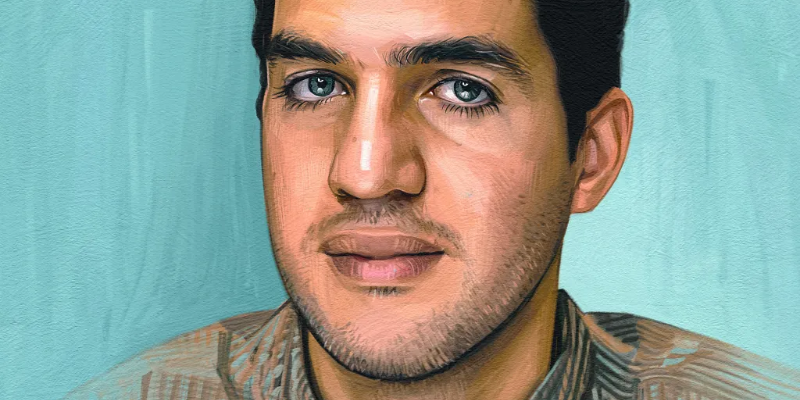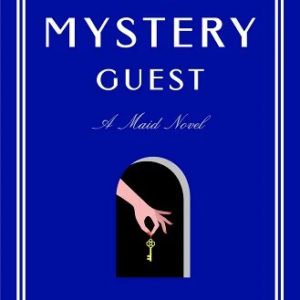Benny Safdie on Capturing Life on Film
This Week on the Talk Easy Podcast with Sam Fragoso
Illustration by Krishna Bala Shenoi.
Talk Easy with Sam Fragosois a weekly series of intimate conversations with artists, authors, and politicians. It’s a podcast where people sound like people. New episodes air every Sunday, distributed by Pushkin Industries.
*
Throughout his fifteen-year moviemaking career, director and actor Benny Safdie has been drawn to naturalism and first-time performers. Fittingly, his recent collaboration with comedian Nathan Fielder (“Nathan for You”) was a perfect match.
Benny joins us today to discuss their satirical black comedy series The Curse, the timely premise that inspired the show, and Safdie’s history of capturing real-life personalities on film. Then, he describes his early connection to the 1979 movie Kramer v Kramer, a New York encounter with photographer Robert Frank, and how directors Robert Bresson and Frederick Wiseman opened his eyes to the possibilities of street casting.
On the back-half, we dive into Benny’s co-directing work alongside his brother, Josh Safdie, a heartbreaking scene from their debut feature Daddy Longlegs, and the projects that followed: Good Time, Lenny Cooke, and Uncut Gems. To close, Safdie talks about why he worked as a boom operator while directing, his recent pivot to acting, and his full circle moment of playing an astrophysicist in Oppenheimer.
Subscribe and download the episode, wherever you get your podcasts!
From the episode:
Sam Fragoso: As a father, have you been re-processing some memories from your upbringing— where your father would create home movies with you and your brother Josh?
Benny Safdie: There was this idea that everything can be interesting, in some way. You can look at certain movies, like Neorealist films and Iranian cinema, where all of these people were making movies about reality. You have Bicycle Thieves literally using the people coming out of the stadium and incorporating that into the movie. So, I understood early on that life can be interesting, or whatever it is that you’re experiencing or feeling is important. It’s just a matter of how you frame it.
SF: Do you remember the first time you and Josh commandeered the camera and began making your own projects?
BS: It was the early nineties. That was when the first consumer cameras were out there, and I think a lot of people from that time grew up under this idea that there’s more accessibility to something that felt so far away. There was also this weird moment early on when point and shoot cameras started having video on them. People didn’t necessarily know when they were being filmed, so there was a lot of honesty that you could capture. I think people now are more aware of cameras.
SF: Oh yes, we’ve been worn down.
BS: Exactly. I remember there was one time I was on Bleecker Street, and I walked by where Robert Frank lived, and I saw him on his bed laid back in repose. I was like, this is unbelievable. I love Robert Frank. I also take photographs! I happened to have my medium format camera with me. So, I go to take a picture of him in this state, and some hand comes in and says, “How dare you!” and she slams the door. And the picture I ended up getting was this hand holding the door closed. It wasn’t him who slammed the door— whoever closed the door, I was like, “This is what he did all the time! All he did was sneak photos of people.”
That was like the first version of the home video camera. Garry Winogrand is another good example of this, all his photos are interesting moments of people. Lee Friedlander, William Eggleston, Joel Meyerowitz, Helen Levitt. You had all these people finding these moments. In Helen Levitt’s case, a whole family crammed into a phone booth. That’s an amazing picture, and you could say it’s an amazing movie because you can see all the people’s emotions on their faces. So, there is this idea of watching and being watched that is definitely in “The Curse,” this idea that somebody is always there looking.
__________________
Benny Safdie is a film director, screenwriter, actor, and film editor. Together with his brother Josh, he co-directed Daddy Longlegs, Lenny Cooke, Heaven Knows What, Good Time, and Uncut Gems. He has also appeared as an actor in Licorice Pizza, Are You There God It’s Me Margaret?, and Oppenheimer.
Sam Fragoso is the host of Talk Easy with Sam Fragoso, a weekly series of conversations with artists, activists, and politicians. His writing has appeared in The Atlantic, Vanity Fair, and NPR. After conducting seminal interviews with icons like Spike Lee, Werner Herzog, and Noam Chomsky, he independently founded Talk Easy in 2016.




















